

As Billy Joel sings in his hit song “New York State of Mind”, “Some folks like to get away / Take a holiday from the neighborhood / Hop a flight to Miami Beach / Or to Hollywood / But I’m taking a Greyhound / On the Hudson River Line / I’m in a New York state of mind.” But Joel was not the only rockstar with this state of mind. He and so many other rockstars, including The Ramones, Bob Dylan, and Lou Reed, called the city of New York their home — at least for some time. In his book, New York Groove, journalist and photographer Frank Mastropolo details the venues, coffee houses, and studios frequented by these esteemed artists. Here are the top 10 rock n’ roll sites you can visit in New York City today!
1. CBGB
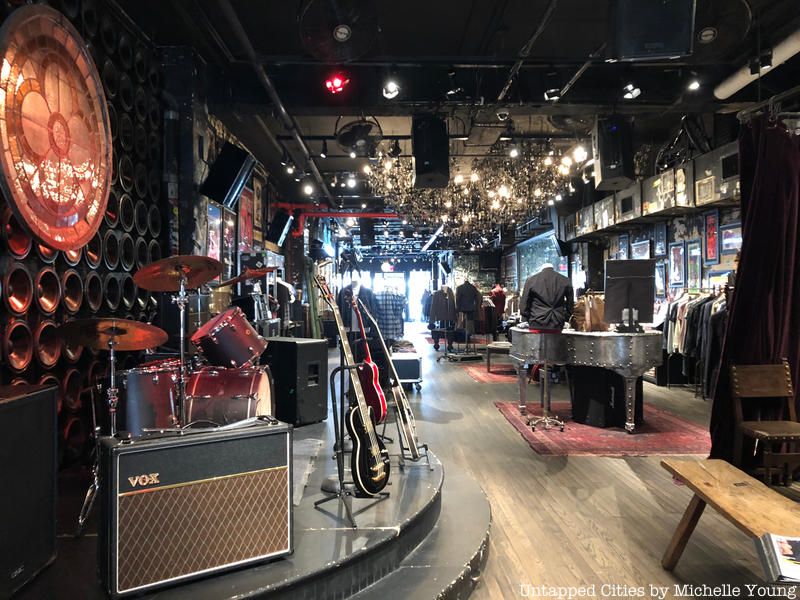
Although the wild concerts put on by CBGB & OMFUG, otherwise known as Country, Bluegrass, Blues, and Other Music for Uplifting Gormandizers, no longer occur since the venue closed in 2006, you can still visit the space in its new form: a John Varvatos clothing store, Punk posters, stickers, and graffiti from the building’s vibrant past still line the walls. “CBGB is a state of mind,” Patti Smith told The New York Times at her final show there, which was also the final concert that occurred in the venue.
CBGB hosted notable rock artists, including The Ramones, Television, Talking Heads, the Heartbreakers, the Vibrators, and Blondie. According to Mastropolo, the performances these bands put on at the venue made CBGB “the mecca of punk rock and new wave music.” However, they also transformed the Bowery, the neighborhood CBGB sat in. When CBGB opened in 1973, it was the only entertainment or music venue in the area. By the time it closed decades later, CBGB had hosted scores of notable musicians and encouraged thousands to travel from far and wide to the Bowery to hear music and experience culture. Today, venues in the neighborhood include The Bowery Ballroom and The Bowery Electric, among others.
This post contains affiliate links, which means Untapped New York earns a commission. There is no extra cost to you and the commissions earned help support our mission of independent journalism!
2. Cafe Wha?
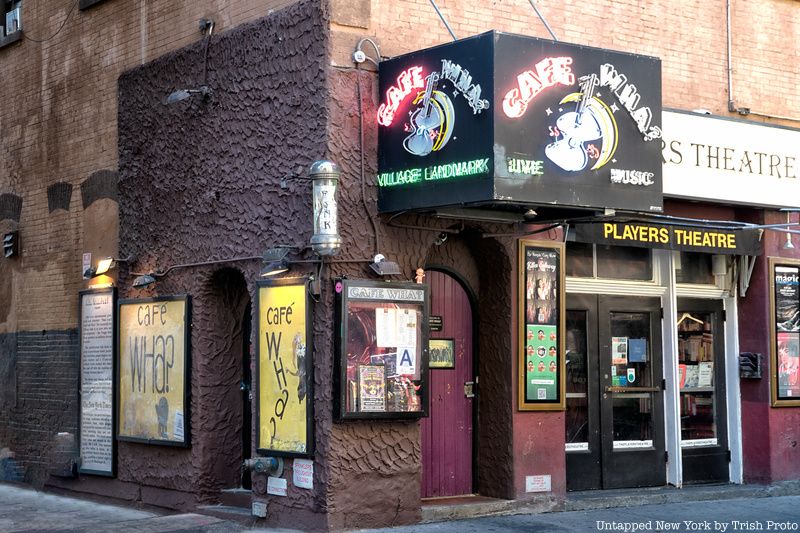
Nestled on the corner of MacDougal Street and Minetta Lane, Cafe Wha? is a music venue opened by Manny Roth in 1959. With a stage graced by icons such as Jimi Hendrix and Bruce Springsteen, the spot has played host to a deep pool of musical talent. Bob Dylan landed his first gig at Cafe Wha? in 1961. “A glowing New York Times review of his performance led to Dylan signing a five-year contract with Columbia Records,” Mastropolo wrote.
Today, Cafe Wha? boasts, “Allen Ginsberg regularly sipped his cocktails here.” This rock n’ roll spot hosts live music every night of the week, with a house band that rocks every Wednesday through Sunday with its own taste of both contemporary and throwback jams — all while staying true to its Beat Generation roots.
3. The Bitter End
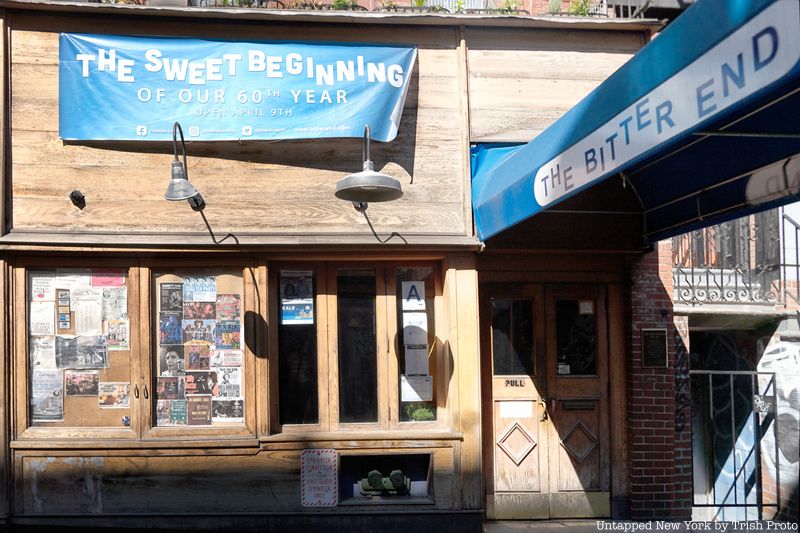
Labeling itself “the oldest rock and roll club in New York City,” The Bitter End is a live music venue founded in 1961 in Greenwich Village. Other than albums by artists such as Randy Newman and the Isley Brothers being recorded live in the venue, The Bitter End has hosted artists including Joni Mitchell, Woody Allen, Tom Paxton, and George Carlin. The club has built a name for itself as a hotspot for good music — especially good rock music.
However, for many notable rockstars, The Bitter End was a place for more than just enjoying a masterful performance. New York Groove reveals, “Kris Kristofferson told the New York Times that The Bitter End was a place where ‘people like me and Bob Dylan didn’t just perform, we came to hang out.'” With other rock musicians hanging around, The Bitter End patrons could play around with sounds and melodies while sipping on house-made cocktails.
4. Ed Sullivan Theater
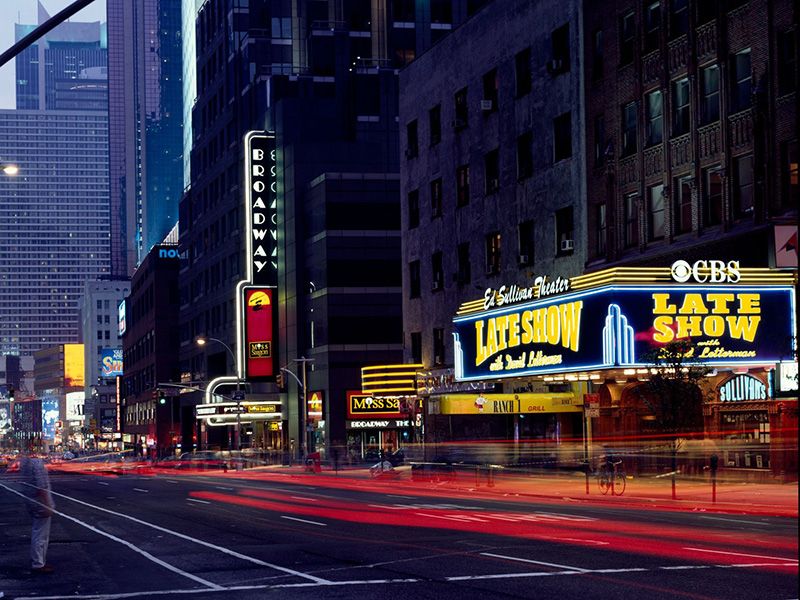
As Ed Sullivan walked through London’s Heathrow Airport in October 1963, he experienced The Beatles craze that began to build during that decade. At that moment, he knew he had to have the Beatles on his show, the Ed Sullivan Show, which was the most popular variety show on television that year. Four months later, the Beatles were slated to appear on the show for three consecutive Sundays.
According to Mastropolo, when the first show ended, Sullivan said to himself, “Something happened but I’m not sure what.” The Beatles had just performed many of their hit songs, including “All My Loving” and “I Want to Hold Your Hand.” The latter was at the top of the charts and elicited the screams of thousands of women. By 1967, the studio, which was called CBS Studio 50, became the Ed Sullivan Theater. Janis Joplin, The Rolling Stones, and The Doors are other notable performers who appeared on the Ed Sullivan Show. Though the Late Show with Stephen Colbert is filmed there today, the theater still bears Sullivan’s name.
5. Strawberry Fields in Central Park
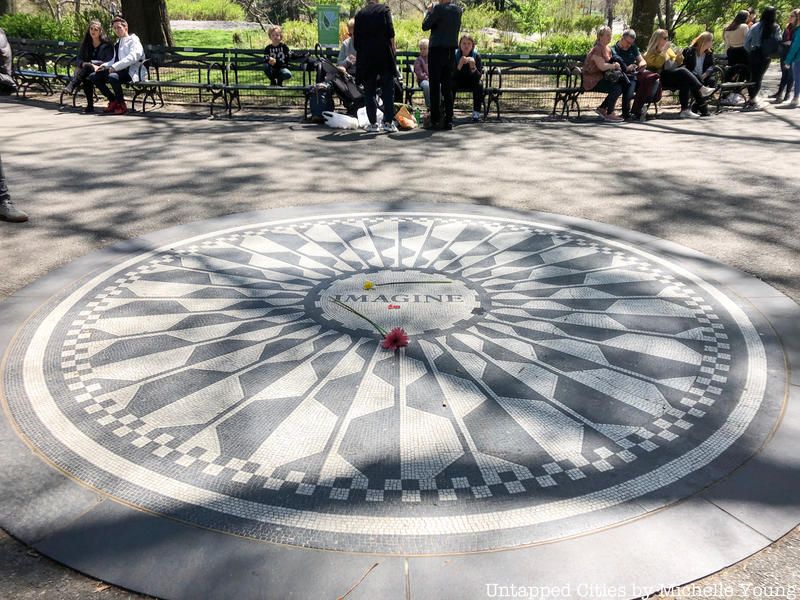
After John Lennon’s tragic murder in 1980, landscape architect Bruce Kelly designed the Strawberry Fields memorial in Central Park where his wife Yoko Ono scattered his remains. The memorial takes its name from The Beatles’ hit “Strawberry Fields Forever,” which is named for the Liverpool children’s home, Strawberry Field, where John Lennon played as a child. The word “imagine” in the memorial is also a tribute to the song of the same name written by Lennon and Ono.
Flowers and other belongings left by Lennon’s fans often cover the memorial today. An array of Beatles fans often sit on the benches that surround the mosaic designed by landscape architect Bruce Kelly. One of the most famous visitors was Gary dos Santos, who installed flower designs around the mosaic and was deemed the “Mayor of Strawberry Fields” after visiting the memorial daily for almost two decades.
6. Music Inn
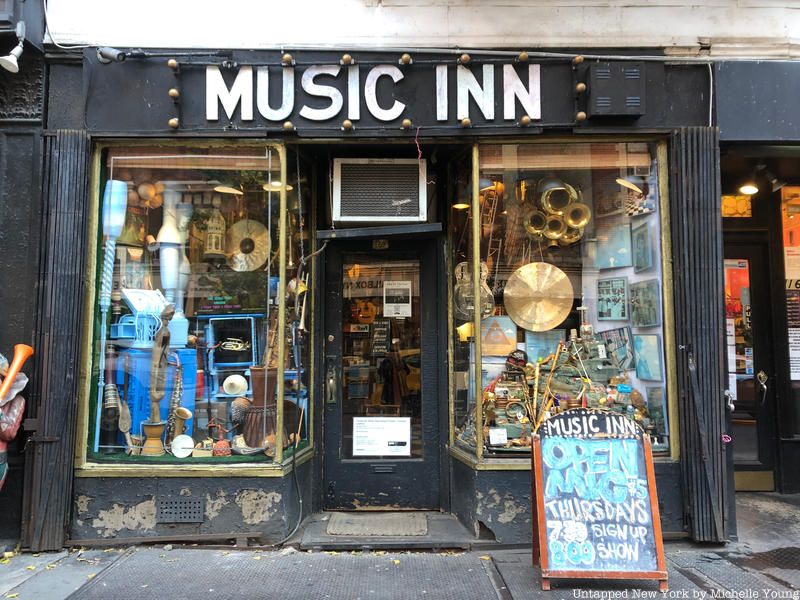
The Music Inn, a small music store opened by Jerry Halpern in 1958, benefitted from the proximity of a handful of rock n’ roll icons. Throughout the 1960s, big names in the rock world, including John Sebastian, Paul Simon, Cyndi Lauper, John Lennon, Yoko Ono, and Bob Dylan lived down the street from the music store. Consequently, the Music Inn became their first stop for musical instrument and records needs.
By the time Jeff Slatnick began working at the store in the 1960s, the store became what it is known for today: a treasure trove of instruments. Due to Slatnick’s obsession with the instruments of the world, every musical instrument you can imagine packs the two-story shop from floor to ceiling. If you walk into the store today, you will likely see Music Inn staff jamming with each other and any customers who desire to join.
7. Electric Lady Studios
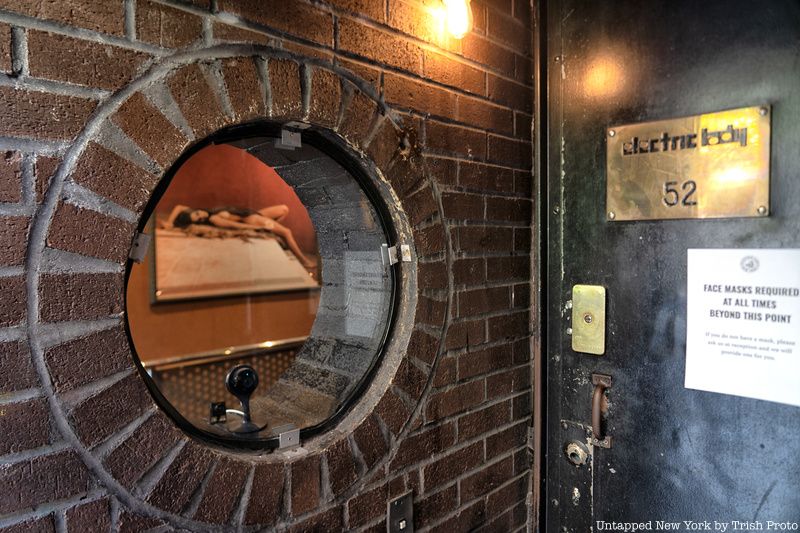
After Jimi Hendrix and Michael Jeffrey, the other co-owner of Electric Lady Studios, enjoyed jamming and hanging out in Greenwich Village’s Generation Club, they decided they wanted to buy the space. Hendrix originally wanted to build a nightclub in the space, with plans to hire architect John Storyk and audio engineer Eddie Kramer, but the sound engineer had a new idea as soon as he walked into the studio. According to Mastropolo, Kramer told PBS that he thought, “‘Get out of here; this is nuts. Let’s build Jimi a recording studio. We’ll make the best recording studio in the world.’”
Though Hendrix co-founded Electric Lady Studios in August 1970, once he left the studio’s launch party for a performance in the UK, he never returned. Hendrix died tragically young at the age of 27, but the recording studio that he invested time and money into lives on as a testament to his rockstar potency and contribution to the realm of rock n’ roll. Since its inception, rock n’ roll stars including Stevie Wonder, Bob Dylan, Patti Smith, AC/DC, the Clash, David Bowie, and John Lennon. have recorded in Electric Lady Studios.
8. Caffe Reggio
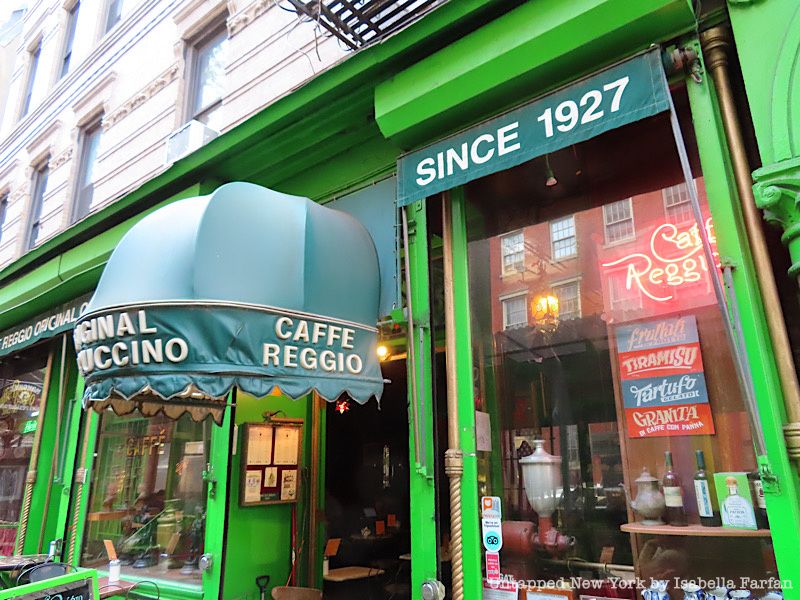
Caffe Reggio prides itself on being the first cafe in the United States to serve cappuccino. Founded in 1927, this joint located in Greenwich Village is located only a block and a half away from Washington Square Park. Pieces of art, some of which can be traced back to the Italian Renaissance, adorn the walls of the cafe. When original owner Domenico Parisi opened the cafe, he purchased an espresso machine that is allegedly the oldest espresso machine in New York City. Natives and tourists alike flock to the cafe, which is one of the oldest restaurants in Greenwich Village, to try the legendary cappuccino today.
Decades ago, other famous regulars attracted an artistic crowd to Caffe Reggio. Other than some of the often pointed to patrons of the eatery — Jack Kerouac and other members of the Beat Generation — Caffe Reggio also hosted rock n’ roll stars. Bob Dylan was one of the most notable rockstars who frequented the cafe, and described Greenwich Village coffee shops and venues as “nameless and miserable, low-level basket houses or small coffeehouses where the performer passed the hat,” according to Mastropolo. However, Dylan never passed up the opportunity to play music within the bright green venue.
9. Radio City Music Hall
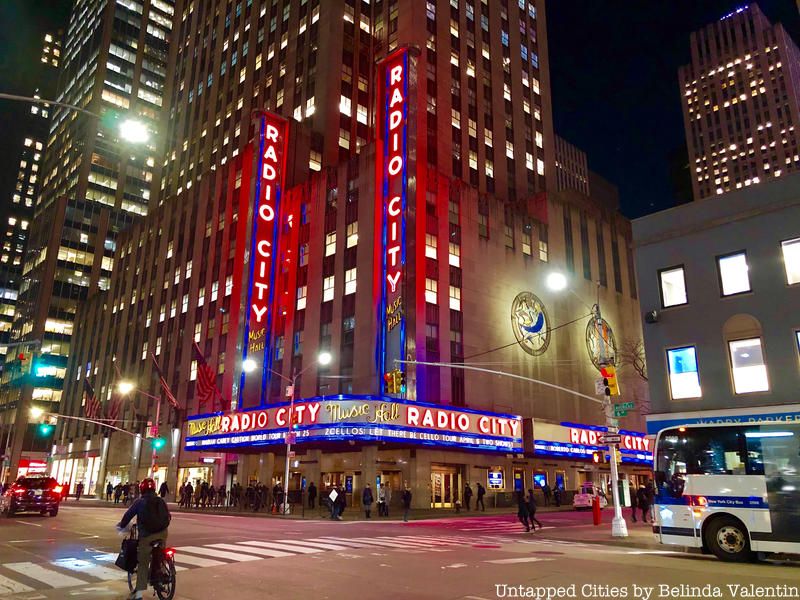
Few know that the creators of Radio City Music Hall envisioned the venue as an opera house. However, the space has changed purposes throughout the decades from a concert hall, to a movie theater, to a venue for awards shows, and back again. Radio City Music Hall's unique Art Deco design, uncommon for a theater of its time, and its iconic neon facade have become a symbol of New York to rival the Empire State Building or Times Square.
The year 1972 marked the first rock n’ roll concert at Radio City Music Hall. Since Todd Rundgren, Billy Preston, McKendree Spring, and more performed at this fateful performance, a slew of notable stars has graced the venue’s stage. Most notably, Bob Dylan, Madonna, U2, Lenny Kravitz, Aerosmith, Pink Floyd, and Men at Work have performed at Radio City Music Hall over the years.
10. Madison Square Garden
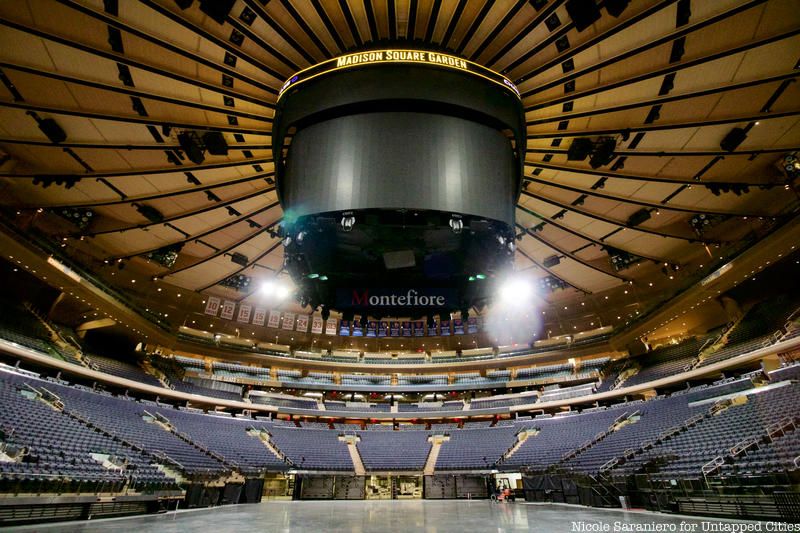
Though Madison Square Garden has existed in many forms and in many neighborhoods throughout New York City, today’s Madison Square Garden opened in 1968 as a sports arena. With seats for thousands of people and acoustics for sound to reach every person, the arena soon became a concert venue as well.
Today, Madison Square Garden can fit more than 20,000 spectators into its blue-hued seats. Notable artists who have performed at the venue include U2, Madonna, the Grateful Dead, and The Who. In his book New York Groove, Mastropolo records that Billy Joel said, “Madison Square Garden is the center of the universe as far as I’m concerned. It has the best acoustics, the best audiences, the best reputation, and the best history of great artists who have played there. It is the iconic, holy temple of Rock and Roll.”
Next, check out 9 NYC Cafes Frequented by Influential Authors!

